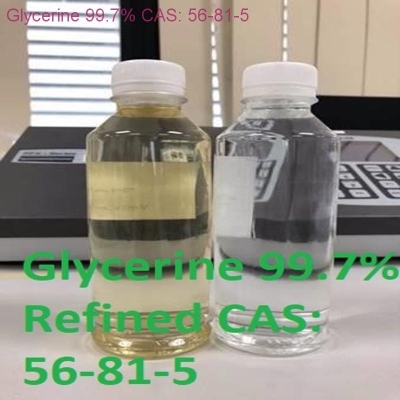-
Categories
-
Pharmaceutical Intermediates
-
Active Pharmaceutical Ingredients
-
Food Additives
- Industrial Coatings
- Agrochemicals
- Dyes and Pigments
- Surfactant
- Flavors and Fragrances
- Chemical Reagents
- Catalyst and Auxiliary
- Natural Products
- Inorganic Chemistry
-
Organic Chemistry
-
Biochemical Engineering
- Analytical Chemistry
- Cosmetic Ingredient
-
Pharmaceutical Intermediates
Promotion
ECHEMI Mall
Wholesale
Weekly Price
Exhibition
News
-
Trade Service
Cirrhosis, which has a high number of people and a high risk of death, is an
Clinical application of terlipressin in complications of cirrhosis
1.
Guidance Statement 1: Terlipressin is recommended for the treatment of acute esophageal gastric variceal bleeding
Guidance Note 2: In patients with acute gastrointestinal bleeding with cirrhosis, terlipressin
Guidance Statement 3: For patients with acute gastrointestinal bleeding with renal insufficiency in cirrhosis, the use of terlipressin
2.
Guidance Statement 4: Terlipressin is recommended for the treatment
3.
Cirrhosis with ascites
Guidance Statement 5: Terlipressin
may be considered in patients with cirrhosis with severe ascites or refractory ascites if diuretics are ineffective or cannot tolerate diuretic-related adverse effects.
4.
Circulatory dysfunction after a large amount of peritoneal puncture (>5L) after ascites
Guidance Note 6: Terlipressin is recommended for the prevention of circulatory dysfunction following a large (>5L) ascites in patients with cirrhosis and ascites
.
5.
Cirrhosis with bacterial infection
Guidance Note 7: In patients with cirrhosis with bacterial infection, terlipressin may be considered to improve systemic hemodynamic status, microcirculation, and tissue perfusion
.
6.
Hepatic resection
Guidance Note 8: Terlipressin reduces intra- and postoperative portal vein pressure during and after hepatic resection and helps reduce intraoperative blood loss and transfusion needs
.
7.
Liver transplantation
Guidance Note 9: Terlipressin can be used to improve systemic hemodynamic status and renal function
after liver transplantation.
, and can often be reduced by medication, discontinued or improved
after symptomatic treatment.
References: Hepatobiliary Disease Group of The Gastroenterology Branch of the Chinese Medical Association, Hepatology Committee of the Chinese Association of Research Hospitals.
Practical guidance on the clinical application of terlipressin in complications of cirrhosis (2021 edition).
Journal of Clinical Hepatobiliary Diseases, 2022,38(8): 1733-1738.
See "Read the original text" for the original text.







